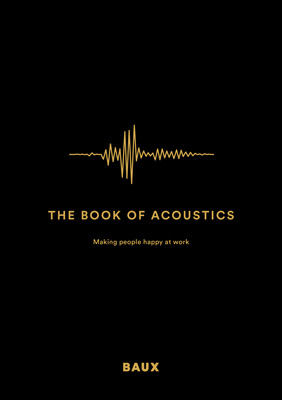Chapter 1.0 The fundamentals of sound control
1.3 Sound that lingers
REVERBERATION
A room with a long reverberation time can be perceived as more spacious and optimise the experience of listening to live music. Reverberation is less optimal for speech, however. When it is too long, it can cause the sounds of individual words spoken consecutively to reverberate simultaneously. Reverberation is the lifetime or persistence of a sound wave in an enclosed space, measured from the time it first appears to the time it is no longer audible. As a sound wave travels around a space, interacting with different obstacles, it is reflected back and forth between surfaces with some of its energy being absorbed upon each impact until it completely ‘dies out’. The more absorbent the room, the more quickly the sound diminishes.
ECHOS
Echoing indoors can make conversation difficult, and amplify distracting sounds. When reverberation time is long enough, an echo can occur. An echo is the distinct repetition of an original sound produced through the reflection of sound waves, which arrives at the listener following a delay. The length of the delay depends on the distances between the reflecting sound surface, the sound source, and the listener. One type of echo that is particularly problematic is a flutter echo. A flutter echo is the phenomenon of sound energy becoming trapped and reflecting repeatedly between two parallel surfaces, such as in a hallway.

